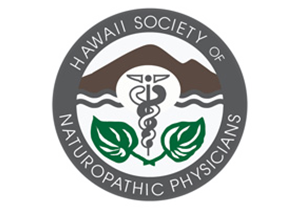This article is reposted from a blog I contribute to called NaturopathicPediatrics.com. Check them out for other great articles from naturopathic physicians specializing in pediatrics!
Many first-time expectant moms are already prepared with creams and ointments to fight diaper rash before baby is even born. Diaper rash, or diaper dermatitis, is a common ailment that affects most babies and can range from fleeting to severe. It can be a real challenge to treat if not properly identified. The following information will help you tell the difference between the top three causes of diaper rash, many of which can be easily treated at home:
Irritant dermatitis:
The most common cause of diaper rash is due to the use of the diaper itself. This is from wet skin being in contact with the diaper, urine and stool.
Irritant dermatitis looks like:
- Typically there is redness and swelling of the skin along the top of the diaper, over the bottom and around the legs.
Irritant dermatitis gets better with:
- It is usually improved with allowing baby to go without a diaper as much as possible and using a thick ointment to protect the skin while wearing the diaper. I recommend zinc-oxide ointments rather than petroleum jelly (lotions and creams are also not as effective as ointment and zinc-based diaper creams). There are many brands available and my favorite are the natural creams without any phthalates, parabens, petrolatum, or sodium laurel sulphate.
Candida dermatitis:
Candida diaper rash is due to an overgrowth of yeast. This is commonly called a yeast infection, but the yeast is actually a normal part of the microbes living on our skin. The overgrowth happens when they get out of balance with the bacteria (like after taking antibiotics). Yeast grows really rapidly in the presence of warmth, moistness and sugar (think about letting bread rise or brewing beer). The warm, moist diaper is the perfect environment for yeast to thrive especially when baby eats a lot of high-carbohydrate foods. Breast-fed babies tend to get less Candida rash than formula fed babies.
Candida dermatitis looks like:
- Candida diaper rash is usually seen as redness and swelling in and around the creases of the legs, bottom, testicles and vulva rather than around the diaper lines like irritant diaper rash. Candida dermatitis classically has“satellite lesions” where there are small round spots of rash located near the main, large rash.
Candida dermatitis gets better with:
- A doctor may prescribe an anti-fungal medication like Nystatin as a treatment. Compresses of apple cider vinegar diluted half-and-half with water along with essential oils of lavender and melaleuca mixed in coconut oil and applied topically can also clear up candida rash without the need for anti-fungal drugs.
Allergic dermatitis:
This diaper rash is due to an allergy to something that is coming in to contact with the skin. It could be an allergy to the chemicals and materials in the diaper, wipes, and diaper cream, lotion, soaps, shampoos or laundry detergents.
Allergic dermatitis looks like:
- This type of rash is harder to identify but is red and can have areas where the skin is worn away.
Allergic dermatitis gets better with:
- It will not go away with anti-fungal creams or zinc oxide. Finding and eliminating the culprit is really the only way to solve allergic dermatitis. Baby’s skin is very sensitive and so it is always important to use gentle, chemical-free soaps, lotions and detergents. Some baby wipes have a preservative called methylisothiazolinone (MI), which was named the Dermatitis Society “allergen of the year” in 2013. Read the ingredients of anything you put on your baby’s skin and choose products without harsh chemicals and preservatives.
Most diaper rashes are due to one of the above problems. However, there are other, less common causes of diaper rash and some could be a sign of an underlying and more serious condition. If your baby has a diaper rash that does not go away with treatment or continues to come back, make sure you see a physician. If your baby or child has a rash with a fever please see a physician right away.
Bacterial dermatitis:
Bacterial diaper rash may be caused by several different organisms. The most common are Staphylococcus aureus (Staph), which also causes impetigo, and Group AStreptococcus (Strep), which usually is seen as strep throat.Bacterial rashes tend to come on when the skin is already irritated or has small cuts and fissures either from vigorous wiping or a previous non-bacterial rash.
Bacterial dermatitis looks like:
- Staph: small or large pus-filled blisters that rupture easily and will form a “honey-colored” crust or scab.
- Strep: bright red, well-defined rash around the anus (often seen as a ring) and possibly extending in to the perineum (the place between the anus and genitals). It can also have small cuts, or fissures, in the anus leading to small amounts of blood in the stool. Strep infections can occur in preschool or elementary-aged potty-trained children as well. It usually itches and will cause pain with passing the stool. This may cause your child to become constipated from holding the stool (see previous post “Treatment for children’s constipation without Miralax”).
Bacterial dermatitis gets better with:
- Your physician may prescribe an antibiotic cream called Mupirocin. Additionally you can try topical antibacterial herbs such as melaleuca and oregano essential oil (diluted in coconut oil – these are strong oils!), or salves containing antibacterial herbs like goldenseal and calendula.
Citations:
- http://www.nytimes.com/2015/01/24/business/allergy-trigger-found-in-many-personal-care-items-comes-under-greater-scrutiny.html?_r=0
- http://www.uptodate.com/contents/overview-of-diaper-dermatitis-in-infants-and-children
- https://pedclerk.bsd.uchicago.edu/page/diaper-rash


